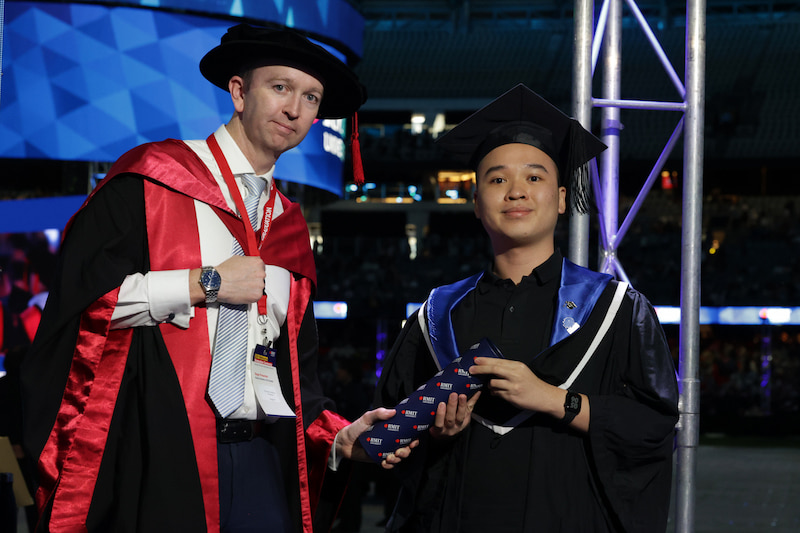Can Vietnam’s high school graduation exam reflect students’ real strengths?
Vietnam’s national high school exam is a critical step toward university admission, but questions remain about how accurately it reflects students’ true abilities and prepares them for future challenges beyond the classroom.
RMIT maintains strong position in world university rankings
RMIT has retained its place among the world’s top 125 universities in the latest QS World University Rankings, a highly influential international ranking system.
RMIT and Katalon expand strategic partnership to build AI-ready workforce
RMIT Vietnam and Katalon have signed a memorandum of understanding (MoU), aimed at equipping students with an adaptive mindset, future-ready skills, and AI tools.
Newly minted software engineer steps out of the lab into the world
Ho Le Minh Thach never imagined himself as a software engineer. The solid academic foundation he received at RMIT Vietnam, and his experience with Harvard's computer science course, sparked his passion for programming and empowered him to pursue a career in software engineering.






